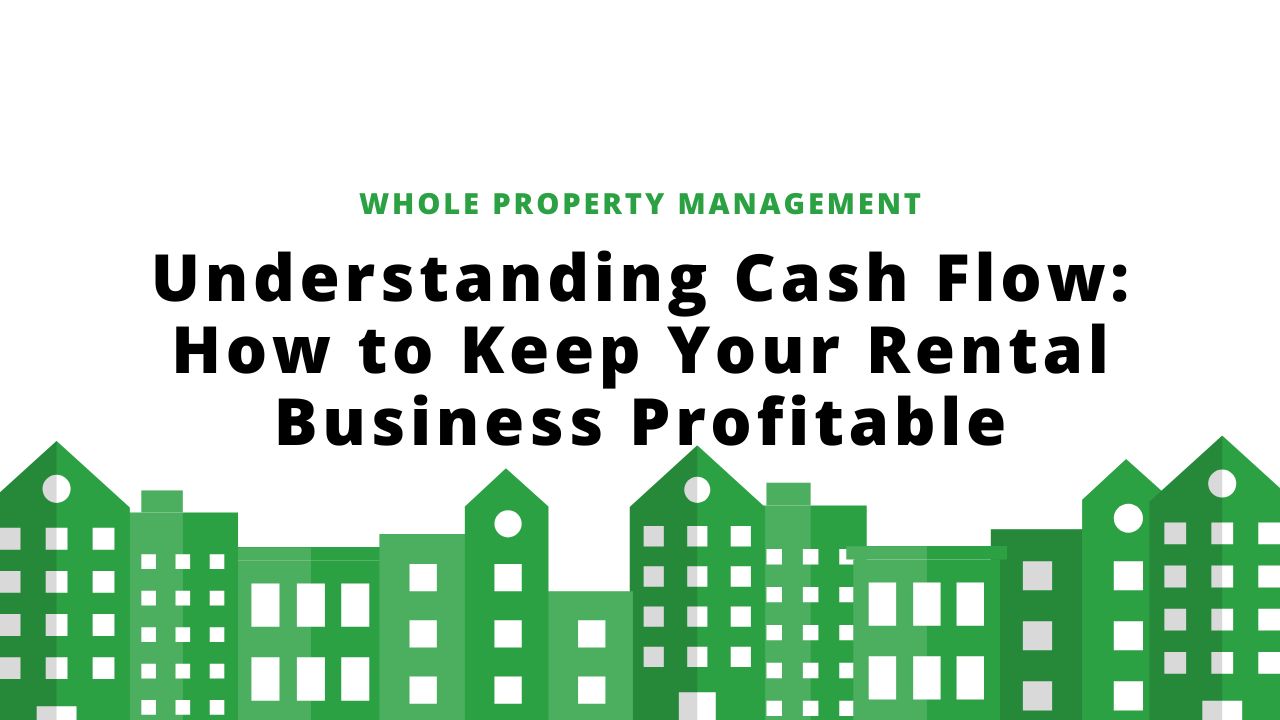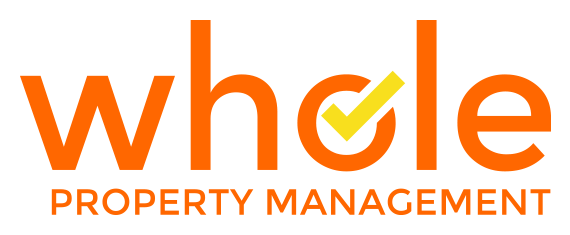Understanding Cash Flow: How to Keep Your Rental Business Profitable

Key Takeaways
- Focus on Cash Flow First: Equity is long-term, but cash flow pays the bills now. Prioritize monthly profit to keep your rental sustainable and profitable.
- Know Your Real Expenses: Include all operating costs—mortgage, taxes, insurance, maintenance, vacancies, and more—to calculate accurate cash flow.
- Price Rent Strategically: Base rent on local market data, not emotion. Regularly review comps and adjust pricing to reflect current demand.
- Minimize Turnover and Automate Tasks: Retaining tenants saves money. Use automation and proactive maintenance to reduce stress, save time, and boost efficiency.
You bought a rental property for passive income—but lately, it’s starting to feel more like a full-time job, and the returns aren’t quite what you expected. Let’s change that.
Whether your property is in Denver, Colorado Springs, or Fort Collins, understanding cash flow is essential to making your rental business truly profitable. It’s not just about collecting rent—it’s about making informed, strategic decisions that consistently put more money in your pocket.
In this guide from Whole Property Management, we’ll break down what cash flow really means for landlords and share practical tips to help you boost income, reduce expenses, and keep your rental business on solid financial ground.
What Is Rental Cash Flow?
At its core, cash flow is the money you keep after covering all the costs of running your rental. If you’re not watching this number closely, it’s easy to end up working hard for little—or even losing money.
The basic formula looks like this:
Monthly Rent – (Mortgage + Taxes + Insurance + Maintenance + Property Management + Other Expenses) = Cash Flow
Let’s put that into perspective with a typical Colorado rental:
- Monthly rent: $2,000
- Mortgage: $1,200
- Property taxes: $150
- Insurance: $100
- Maintenance: $100
- Property management: $180
Cash flow = $2,000 – $1,730 = $270/month
That $270 is your monthly profit. It might not sound like much, but it adds up—and it’s the difference between a rental that supports your financial goals and one that drains your time and resources.
Why Cash Flow Matters More Than Equity (At First)
Yes, long-term appreciation is nice. But you can’t pay your bills with future value. Cash flow keeps you afloat, especially during vacancies, unexpected repairs, or rate hikes.
It’s your safety net and your profit stream.
In places like Fort Collins, where rent demand is strong, your monthly income can help offset mortgage rate increases or tax hikes. Lenders also care about monthly income. Fannie Mae’s rental income guidelines show how strong cash flow can support future loan approval.
7 Smart Strategies to Maximize Cash Flow From Your Colorado Rental
These proven strategies will help you make smarter decisions, boost cash flow, and treat your rental like the business it is.
1. Know Your True Operating Costs
This is where many landlords go wrong. They underestimate the little stuff, and it adds up.
Here’s what to include in your cash flow math:
- Mortgage (including PMI, if any)
- Property taxes (double-check your county rates!)
- Landlord insurance
- Maintenance and repairs
- Vacancy allowance (budget at least 5–10%)
- Property management fees
- HOA dues (if applicable)
- Utilities (if you cover any)

Not sure what qualifies as deductible? The IRS outlines it clearly here, including expenses you might be forgetting. Curious what professional management would cost? You can view our pricing breakdown here.
2. Set Rent Based on the Market, Not Emotion
Just because your mortgage is $2,000 doesn’t mean you can charge $2,200.
Rent must reflect local demand and unit condition. A 3-bed in Colorado Springs may rent for $1,800, while a similar unit in Boulder could fetch $2,600.
Research local comps monthly. Use sites like Zillow or Rentometer. Or better yet, ask our team at WholePM, we set rents for dozens of properties weekly and know what moves.
Include annual rent reviews in your lease or rental agreement to adjust pricing in line with inflation and market trends.
3. Keep Vacancies (and Turnover Costs) Low
Every month, your unit sits empty, and you’re losing money. Even worse? Tenant turnover costs, cleaning, repairs, and marketing can eat up an entire month’s rent.
Here are the best ways to reduce turnover:
- Use clear communication methods
- Prompt maintenance
- Online rent payment options
- Respectful, professional property management
4. Plan for Maintenance Like a Business Owner
Emergency calls at midnight aren’t just stressful, they’re expensive. So don’t wait. Build a preventive maintenance schedule:
- Seasonal HVAC checks
- Gutter and roof inspections
- Plumbing checks (especially in winter!)
- Annual appliance servicing
It’s cheaper to catch issues early than to replace major systems later. Even $100/month in planned maintenance can save you thousands. And remember, if you’re not in town, you need a team you trust. That’s where our Fort Collins crew comes in.

5. Automate Everything You Can
Time is money. The less time you spend chasing rent, scheduling repairs, or responding to texts, the more profitable your rental becomes.
Here’s what to automate:
- Online rent collection
- Maintenance requests via the portal
- Lease renewals and reminders
- Bookkeeping and expense tracking
Software can do all this, or you can partner with a manager (like us!) who already has these systems in place.
6. Adjust Strategy by City
Different markets require different strategies. Let’s say you own one property in Denver and another in Colorado Springs.
Your cash flow strategy should reflect the local:
- Property taxes and insurance rates
- Seasonal demand patterns
- Rent growth trends
- Turnover rates
For example, Denver may have a stronger appreciation but higher taxes. Colorado Springs might offer better cash flow today, but slower price growth.
7. Review Financials Every Quarter
You can’t fix what you don’t track. Make it a habit to check:
- Net income
- Expense trends
- Occupancy
- Rent collected vs. due
- Repair costs by category
If you see something eat away at your profits, fix it early.
Pro tip: Use visuals. Charts help you spot cost creep before it hurts.
Want to run the numbers yourself? Try this rental property calculator; it includes cash flow, ROI, and more.
Bottom Line
Managing a profitable rental property takes more than just collecting rent—it requires smart planning, consistent oversight, and a clear understanding of your finances. From setting the right rent to minimizing vacancies and tracking expenses, every decision impacts your bottom line.
At Whole Property Management, we specialize in helping Colorado landlords—from Denver to Fort Collins—maximize their cash flow while reducing day-to-day stress. With our local expertise and proven systems, you can enjoy the benefits of rental ownership without the constant juggling act.
Want more profit and less hassle? Let’s make it happen.Contact us today to take the next step toward a more successful rental business.
